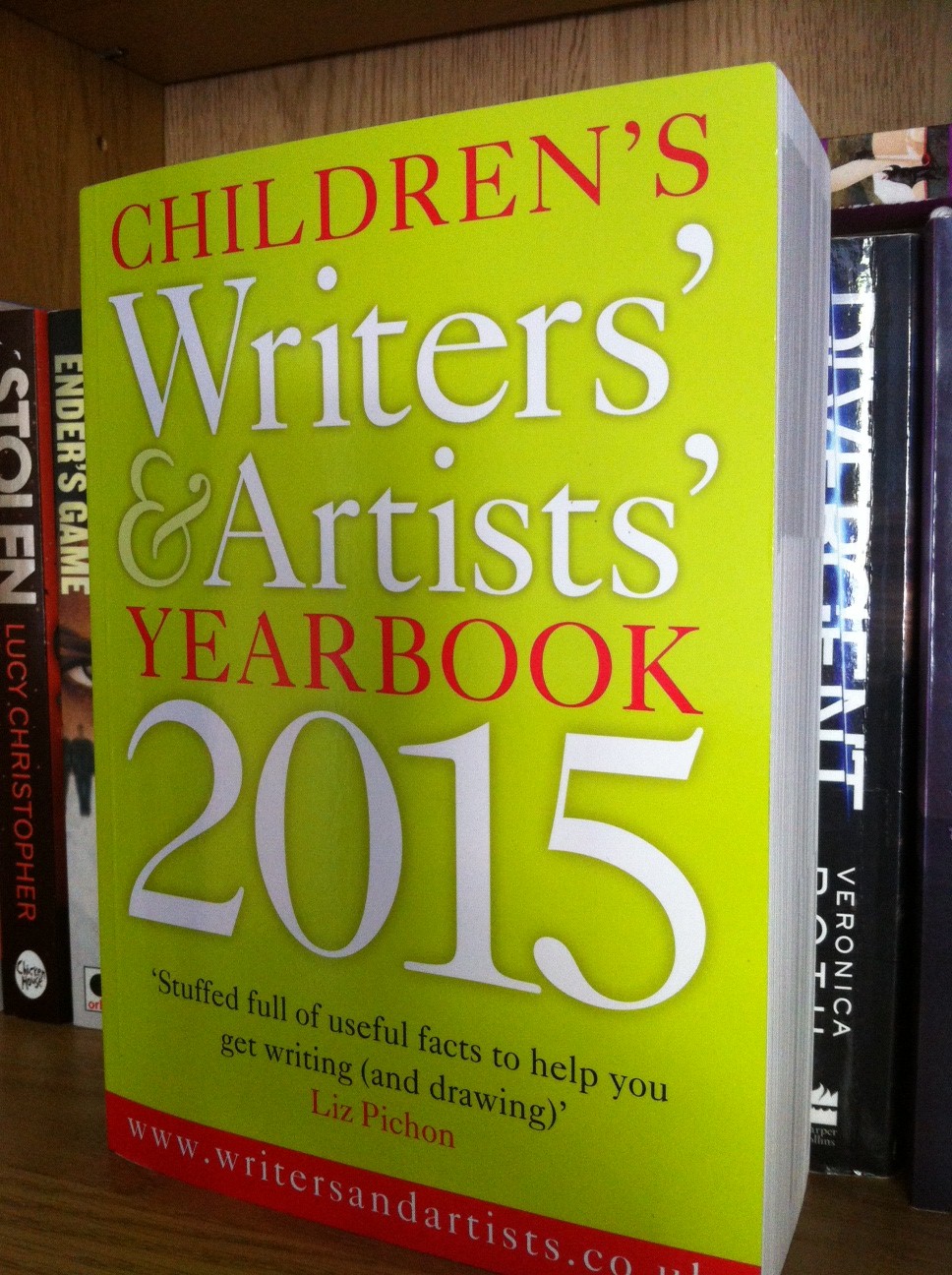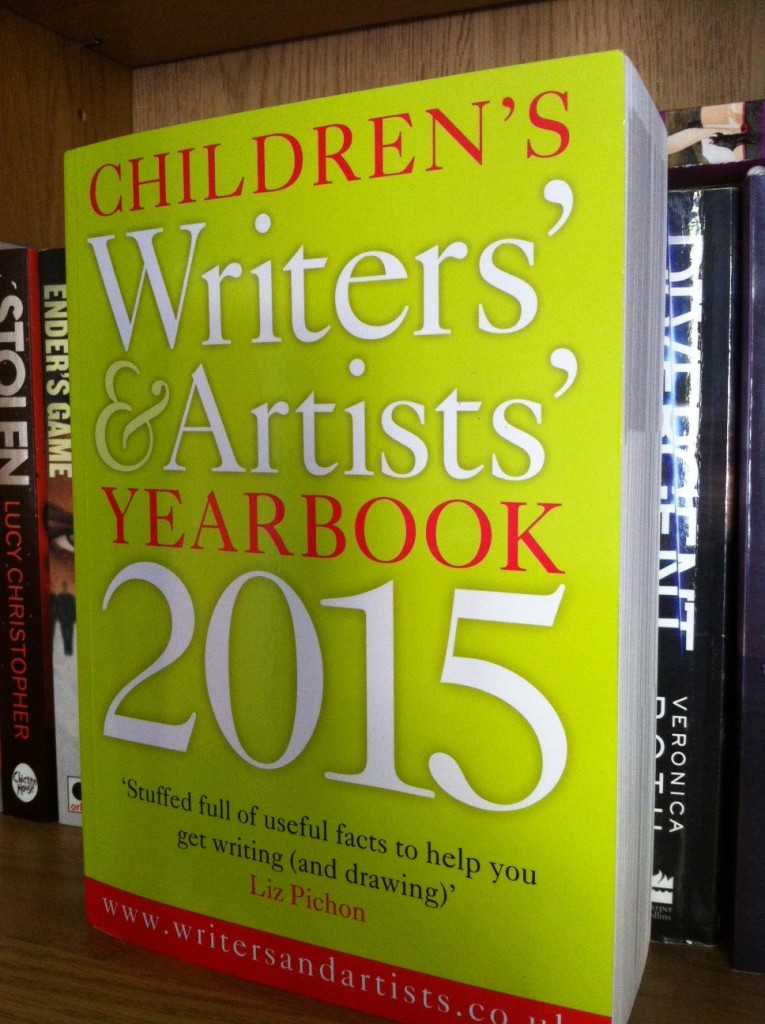Considering how many hours a writer puts into a manuscript, most spend surprisingly few researching the right places to send that precious piece of work to.
Of course the internet is bulging with potential agents, but the Writers’ and Artists’ Yearbook is considered the most authoritative place to begin the search (and they also run great courses to help with that, as mentioned last time).
However, it’s not enough just to glance through pages or screens and pluck off names to create a hit list. More in-depth research may feel like a waste of time – chasing the wind down paths that’ll come to nothing – but it could ultimately save you a lot of time by enabling you to submit to the right people more quickly.
Last year, an agent read the original first chapter of my WIP. She said it wasn’t quite right for her, as the stakes were too high, but she thought I was a good writer and would be happy to read more of my work in the future. In the subsequent restructuring of my WIP I took her opinion into account (it fitted with changes I wanted to make anyway) and so I had it in the back of my mind to resubmit to her when I got to that stage again.
However, although the first chapter is no longer as apocalyptic as it was, the whole book/series remains high stakes with a vast backdrop. A little niggle started to grow that it still might not be her cup of tea. This thought was reinforced when I came across one of her clients, who writes frothy teen romance. Ah, I realised, if this is the sort of thing said agent loves then it really is highly unlikely that she’ll like my book, even with its changes.
Obviously no one wants to cross potential agents off their list before they’ve even begun. It'd also be foolish to assume that she definitely wouldn’t be interested in my story. So she’s not crossed off completely, just moved a lot lower (not that I have an actual list yet, this is a fluid metaphorical one in my head!).
The more you can find out about agents and their likes, the more information you get about how good a match they might be for you and your work.
Three key ways to do this vital research:
1. Their website
Most agents list the genres that particularly interest them and make it clear if there are genres they don’t deal with. That information alone can stop you making pointless submissions.
Study their client list. My heart sinks at the thought of it, so yours probably will too. But. It. Is. So Important.
This research can take a lot of time – especially if the authors or their books aren’t well-known to you and you need to read/read up on them. However, the information you gather could make all the difference to streamlining your submission process. For example, if they don’t have a single client who writes sci-fi/fantasy then that doesn’t necessarily mean the agent hates sci-fi/fantasy – in fact they might be very keen to fill that gap in their list – but it should make you stop and consider how appropriate a choice they are.
Having read two of the favourite books of an agent I was interested in (that she mentioned in her professional profile), I realised she loves books that have seriously hard hitting emotional impact (confirmed by another friend who’s pitched to her). I’m all for emotional impact, but not to her train-crash degree. She once was top of my list, she’s now significantly lower.
2. Twitter/Instagram/Tumblr/Facebook
Stalk Follow agents on social media and get to know them slightly better as people. One agent I follow posts too many pictures of cats for my liking! I have nothing against cats (except when they hiss or scratch me), but it’s one less potential connection between us.
There’s another agent whose tone I love in her tweets and that makes me more inclined to approach her. Although all writers are desperate to get agents, your agent still has to be someone you get on with as you'll be working closely together. Think of it like internet dating – you're looking for some level of compatibility.
3. Conferences/Events
These are amazing opportunities to not only learn loads from courses/talks, but also to meet agents in person. 121 appointments are often provided as part of them, but there’s usually plenty of social time as well.
Networking is a horrible word when it means talking to people in order to find out what they can do for you. Don’t do it. Spend time chatting with agents as though they were people (they are!), enjoy it and just be open to any opportunities to find people you click with. It's useful for agents to be sure early on that you don't have two heads, pointy ears or a psychopathic stare (or that you do, if they like that sort of thing!). One agent I asked said he got about 60-70% of his clients from meeting them at conferences/events compared to 30-40% from the slushpile. Understandably, agents want to work with people they get on with just as much as any of us do.
So, you think your manuscript’s finished and you're desperate to get it out there as quickly as possible. But if you want to give it its very best chance at success then STOP! Take some time to plan where it’s going, in the same way you might investigate and organise other big events in your life, like a building project, a major holiday or a wedding. Do your research. Then perhaps edit the manuscript one last time (having had that much lauded break from it) and send it off on its big adventure. Bon voyage!
Similar Posts:
- None Found



 Hi, I'm Mel (you figured that out already though, right?!) and this is where I chat about things that relate to and inspire my writing, as well as share some of it.
Hi, I'm Mel (you figured that out already though, right?!) and this is where I chat about things that relate to and inspire my writing, as well as share some of it.